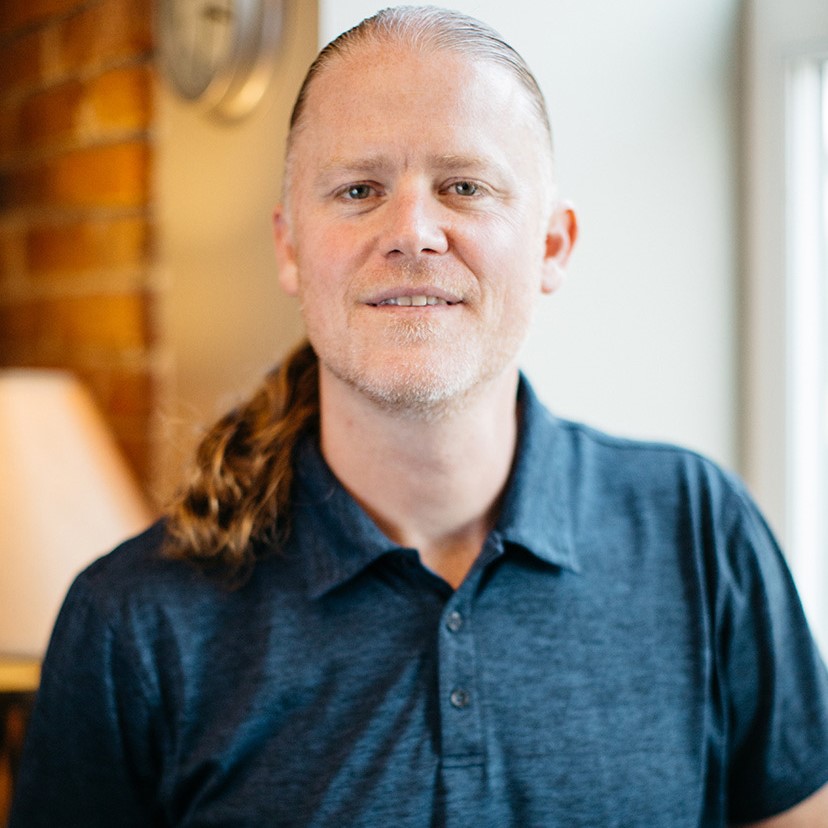As we continue exploring the beauty and complexity (and difficulty) of relationships this month, we’re reaching into the archives for this article from Dr. Doug Shirley, Assistant Professor of Counseling. Doug writes about the tendency of many therapists to treat loved ones (including their partners) as clients, wielding clinical distance and professional jargon as a shield against the risks and conflicts of intimacy. Fair warning: This will probably strike home for pastors, chaplains, and other caregivers as well—not just therapists. (This article originally appeared on Counseling Today.)
Counselors are good at relationships, or so they say. As folklore would have it, counselors are the “knowers” of all things relational and, therefore, can and should be “masters” when it comes to their own personal relationships. But is this really the case?
As a counselor, I thought I was good at relationship until I met and married my wife, who is also a counselor. Together, she and I quickly learned that, although we were each quite good at the craft of counseling, neither of us was all that good at establishing intimacy in our personal relationship. Our clinical training had taught us to rely on (if not hide behind) the role of counselor to find stability in the shifting sands of relationship building and maintenance. We had been taught to counsel rather than to relate. Ultimately, I would argue that this is true for far too many counselors.
Within our Western culture, taking on the post of counselor proffers one a certain amount of power, intended or unintended. One such mantle of power pertains to that counselor’s hermeneutic, or the lens through which that counselor sees the world. Just as lenses can come in various forms of tint, so too can hermeneutics be informed by a vast array of contributants. For many counselors, our entry into the field was informed by a quest to heal a past hurt. As counselors, we’ve entered a profession that gives us access to the hurts of others and allows (even requires) us to focus on or name the “stuff” of others. What is more, our profession can grant us a certain measure of (therapeutic) distance in relationships, wherein we can give without necessarily receiving. Add this all together and it is apparent why our relational sight can be encumbered by the tint of our profession-endorsed hermeneutics.
Can you relate? If so, I think you—like me and like many other counselors throughout the profession—are susceptible to a hermeneutic or relational stance that might be prohibitive to the intimacy we seek with the ones we love outside of our counseling offices. It is here that I see Western culture and its introjects informing the images of “counselor” that reside in each of us.
We as counselors end up holding the mixed bag of messages that our culture affords. We sit in and with dissonance. At times we feel great about ourselves and the work we do. At other times it seems as if we’re a receptacle for others to use for their refuse. And so it goes that we bring said dissonance into our personal relationships, trying to get a handle on who we are and how we are to operate in and through these relationships.
What a mess! We can leave our counseling offices and expect to find the same level of acknowledgment at home. When our partners or our children don’t hang on our every word like our clients seem to, we begin to think our family members are the ones with the problem (how could they be so ungrateful?). Or when our partners begin to question us, we may find ourselves prone to interpreting their apparently exhibited defense mechanisms, loading our relational cannons to shoot down the perceived threat that our relational partners represent to us. In this, we learn to use our skills to hide and defend.
Moreover, counselors can become quite sophisticated in terms of their defensive relational frameworks. Our professional training can keep us entrenched in seeing the patterns of thought and behaviors in others (“You seem to do this” or “You seem to think that”). Having been handed the constructs of transference and countertransference, it becomes hard not to see our partners as just one more person looking to work out their own unfinished business on us and our tabula-rasa backs. In other words, we can stop seeing our partners for who they are and begin responding to them and their behaviors as though they are clients coming to us for “care.”
I find it remarkable that although I’ve been practicing and teaching counseling for well over a decade, it is still surprisingly hard at times for me to be open with my wife about what I am feeling. As a counselor, I have become a wordsmith, and I have become very effective at hiding behind my words when I want to. I can add a proviso such as “It seems like …” or “It feels like …” to my sentences to lambast a loved one or to take inventory of them in a way that is ultimately uncaring.
“Although I’ve been practicing and teaching counseling for well over a decade, it is still surprisingly hard at times for me to be open with my wife about what I am feeling.”
In his text Nonviolent Communication, Marshall Rosenberg reminds us that a phrase such as “I feel like” doesn’t actually serve as an indicator for a feeling to follow. Such a phrase can be duplicitous in that feelings don’t need warm-up phrases. Hence, a statement made with an opening qualifier ends up being nothing more than an intrusion on my relational partner’s boundaries.
To this end, I would call myself a recovering codependent. In fact, many of the counselors I know would fit that category, regardless of whether they espouse such a descriptor. Our profession is one supposedly steeped with boundaries. If clients transgress and cross a boundary, they are called on it, whereas if counselors do so, it is often seen as therapeutic.
For instance, when was the last time you named something in your client? Did you do so with humility and a willingness to be wrong, or was your pronouncement emphatic and delivered with a triumphant edge? If the latter strikes a chord with you as it does for me, then I think we run the risk of taking this type of energy or engagement into relationship with those we love. With our partners, children, friends and other loved ones, we can make pronouncements that we think should garner applause and usher in healing and growth. And I’ll say again, when this doesn’t happen, we’ve been taught to view this dynamic as the other being full of resistance.
Ultimately, I’m trying to speak to my belief that we’ve been set up to fail relationally. So what is a counselor to do? I believe our skills and our attempts at containment, which can seem to get us somewhere in the office, are the very things that can dismantle our interactions with loved ones. We’ve been left with a tool kit of really expensive gadgets that oftentimes have little pertinence to our needed relational repairs. And here’s the kicker: We think we should know better.
I can’t tell you how many times I’ve had the following thoughts when interacting with someone in my personal life: “I should know how to handle this” or “I should know what to do here.” I mean, after all, I am a counselor, right? Aren’t counselors supposed to know how to handle complex relational moments?
I think Carl Rogers was on to something when he claimed it is the personal that is most general (à la On Becoming a Person). A dilemma I face as a person is that I don’t often grant myself the luxury of being just that—a person. No, I think because of the work that I do or the degrees on my wall that I should have it all figured out and should offer pristine love and encouragement to all who come in contact with me. When I am unable to fit this bill, I take it out on myself and cower in shame. I choose to disengage rather than staying present in the moment. I retreat, look for cover and hope for a moment wherein I can get back on solid ground.
A helpful reminder: Maybe there is no such thing as solid ground in relationship. Maybe that’s the point of relationship. You’ve probably heard it said that someone can have enough information about something to be dangerous. I think this is true for many counselors and therapists in their personal relationships. We’ve been given diagnostic and interpretive categories, therapeutic skills to hone and a professional frame in which to hold it all. When push comes to shove, however, very little of this plays outside of the counseling office. Outside of my office, I am faced with the same personal struggles that my clients face: to engage openly and honestly with the people I love.
“Outside of my office, I am faced with the same personal struggles that my clients face: to engage openly and honestly with the people I love.”
So what’s the take-home message here? Don’t assume your clinical training will serve as an asset in your personal relationships. In fact, anticipate that it might act as a liability at points. Listen to yourself talk, and allow your use of language to inform you of your more deep-seated, hermeneutical leanings. Practice receiving care from others, especially from those who know and love you best. Ask for feedback; our places of work should not be the only avenues by which we engage in “performance review” processes. Seek out entitlement and/or power-laden energies in the ways you carry yourself both personally and professionally, and allow that voice of entitlement lodged within or the power plays you display to point you toward unmet needs of your own that are very much worth stewarding.
And above all, let’s stop taking ourselves so seriously. If we render ourselves “knowers” of the human condition who “should” know what to do, say, think, or feel when it comes to our personal relationships, I believe we exponentiate the likelihood that we will promulgate loneliness in those relationships. Let’s allow ourselves to be who we are and where we are and be willing to chuckle at our foibles, our failures, and our good-intentioned but ill-advised attempts to get our own needs met. In so doing, we might just become better lovers.


